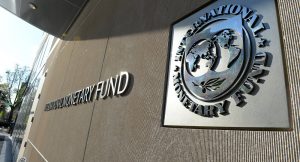


IMF says Africa will grow 3,4 percent this year.
THE International Monetary Fund (IMF) has maintained its growth projections for sub-Saharan Africa at 3,4 percent this year, although revising upwards next year’s growth to 3,8 percent.
The Fund says in its World Economic Outlook Update released on Monday that overall growth in sub-Saharan Africa will exceed that of population over the next couple of years, allowing per capita incomes to rise in many countries.
“But despite some recovery in commodity prices, growth will still fall short of the levels seen during the commodity boom of the 2000s. Adverse developments in Africa — civil strife or weather-related shocks, for example — could intensify outward migration pressures, especially toward Europe,” said the IMF.
Meanwhile, on the global front, the Fund said that amid rising tensions over international trade, the broad global expansion that began roughly two years ago has plateaued and become less balanced.
“We continue to project global growth rates of just about 3,9 percent for both this year and next, but judge that the risk of worse outcomes has increased, even for the near term.
“Growth remains generally strong in advanced economies, but it has slowed in many of them, including countries in the euro area, Japan and the United Kingdom. In contrast, GDP continues to grow faster than potential and job creation is still robust in the United States, driven in large part by recent tax cuts and increased government spending,” read part of the report.
The United States’ growth is also projected to decelerate over the next few years, however, as the long cyclical recovery runs its course and the effects of temporary fiscal stimulus wane.
Advanced economies’ 2018 growth is projected at 2,4 percent, down 0,1 percentage point from the Fund’s April World Economic Outlook projection.
“For emerging market and developing economies as a group, we still project growth rates of 4,9 percent for 2018 and 5,1 percent for 2019. These aggregate numbers, however, conceal diverse changes in individual country assessments,” said the Fund.
Sorry. No data so far.

